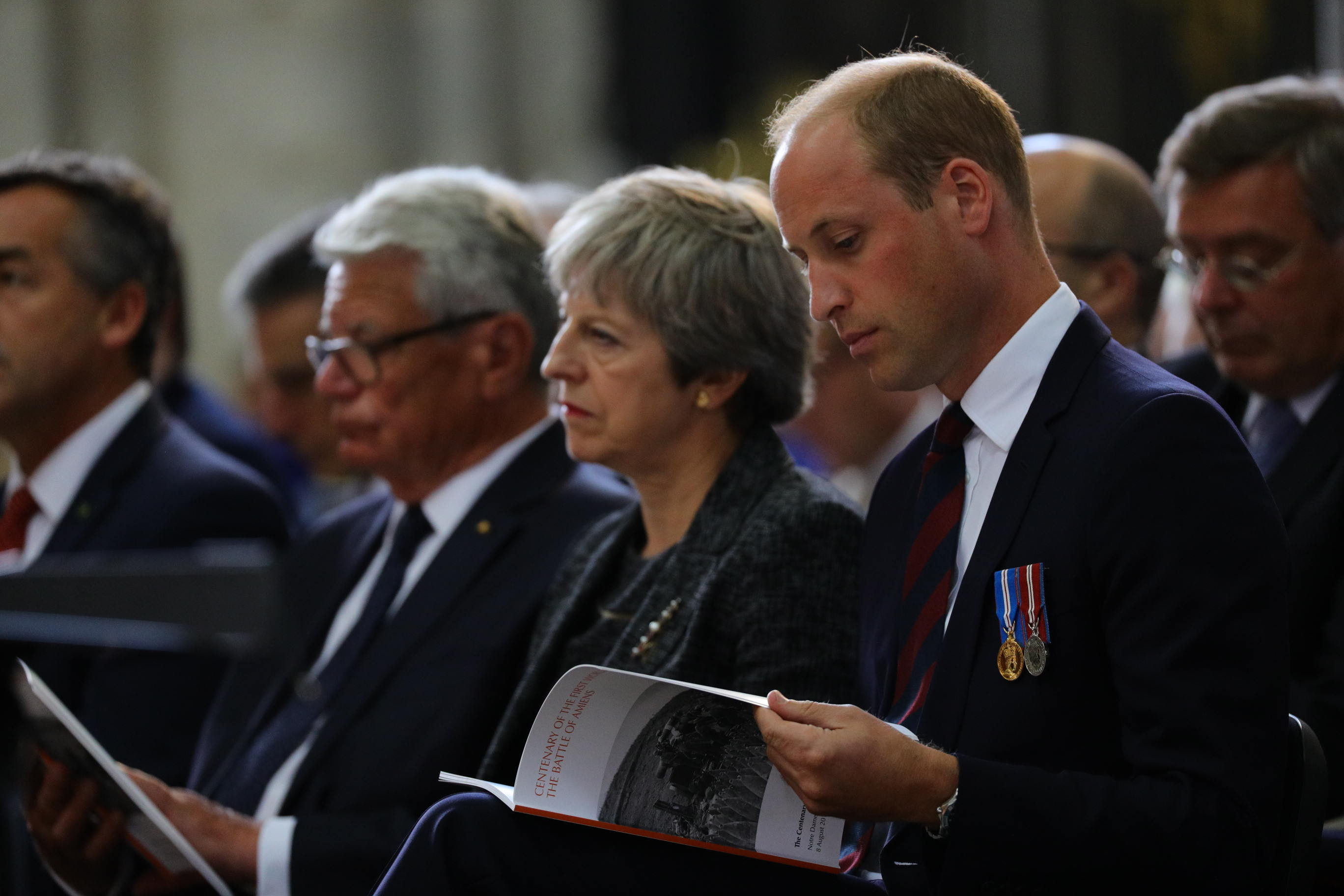
Theresa May and Prince William Mark 100 Years Since The Battle Of Amiens

Prince William and the Theresa Ma, side by side at the Amiens Cathedral (Picture: MoD/Crown Copyright).
The Prime Minister and The Duke of Cambridge have attended commemorations marking the centenary of the Battle of Amiens at Amiens Cathedral in northern France.
Theresa May read from the memoirs of the then British prime minister, David Lloyd George.
The Prime Minister also paid tribute to the "courage, bravery and skill" of troops who fought in the battle.
The Duke of Cambridge acknowledged the debt owed to the First World War troops in a message printed in the official programme:
"The Battle of Amiens, and the continued fighting which followed during the summer of 1918, brought the Allies hope and optimism after four long years of bloodshed and stalemate.
"While it is right that we have collectively commemorated many of the significant battles and campaigns of those years, it is important that the success of the Battle of Amiens takes its rightful place in our shared history."
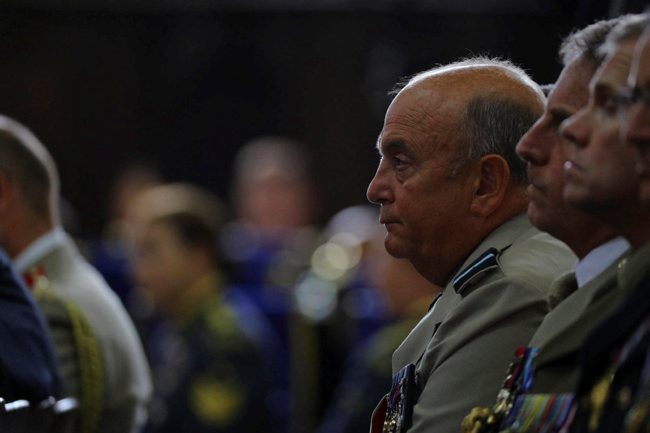
Relatives of soldiers who served and died in the conflict also spoke of their pride and sadness as they joined the Prime Minister and the Duke of Cambridge.
Kevin Sherlock, 58, a retired Rolls-Royce engine inspector from Derby, said his 19-year-old great uncle Ernest Harm, who was killed towards the end of the battle, "paid the ultimate sacrifice", helping to bring peace to Europe.
He said the teenage soldier, a Lance Corporal in the King's Own Yorkshire Light Infantry, 2nd Battalion, was killed, possibly by machine gun fire, going "over the top" on 11 August 1918.
Mr Sherlock added:
"I think as I've got older I've thought about it more really, he was only 19, just a lad really, never experienced anything in his life.
"So there's sadness but also pride that he took part in a key battle that brought ultimately the Allied victory and no doubt about it, shortened the war as well."
Commenting on the fact his great uncle has no known grave Mr Sherlock added: "It must be very painful for a mother to come to terms with, she probably thought he was listed as missing, killed in action, but there's always a small part of you thinking he might walk through the door one day."
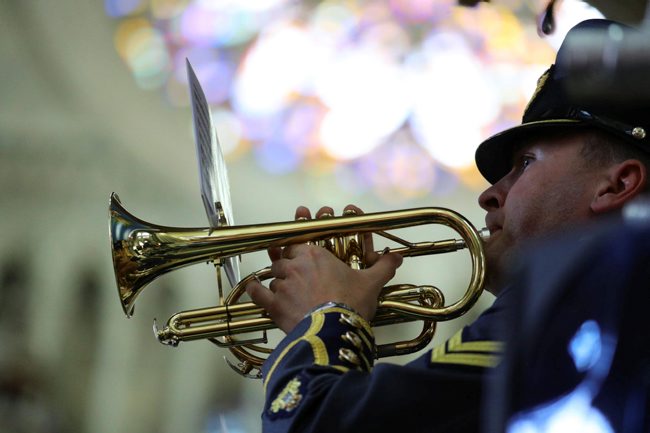
During the commemorations in northern France, the story of the battle was told through contemporary letters, diaries and poems read by guests from the 2,000-strong congregation.
Among those invited were Armed Forces minister Mark Lancaster, his French counterpart Florence Parly, Chief of the Defence Staff General Sir Nick Carter, who is head of Britain's Armed Forces, and representatives of other nations including Germany.
General Sir Nick Carter said: "The Battle of Amiens marked the beginning of the end of the First World War.
"It was a remarkable achievement over the course of the war to expand the military, moulding a new citizen-based force into a very accomplished fighting force, against a backdrop of rapid technological change."
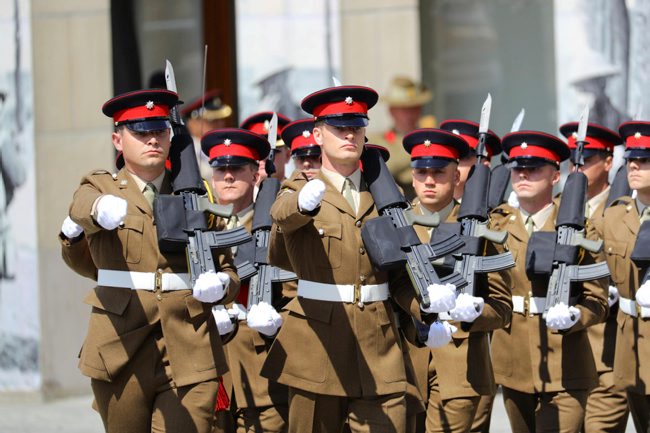
The battle changed the course of the First World War, as the comprehensive Allied victory, due to superior tactics, use of technology and leadership, finally convinced German commanders they could not win, heralding the beginning of the period known as the Hundred Days offensive.
Beginning a little after 4am on 8 August 1918, allied forces swept so quickly through the front at Amiens they captured some German soldiers still having their breakfast.
After the 1918 conflict, successive military victories eventually led to the surrender of German forces and the end of the conflict on Armistice Day on November 11, a hundred days later that year.
General Sir Henry Rawlinson, commander of the Fourth Army, had decided to combine air and land forces from Australia, Canada, France, America and Britain, which proved to be greatly effective during the conflict.
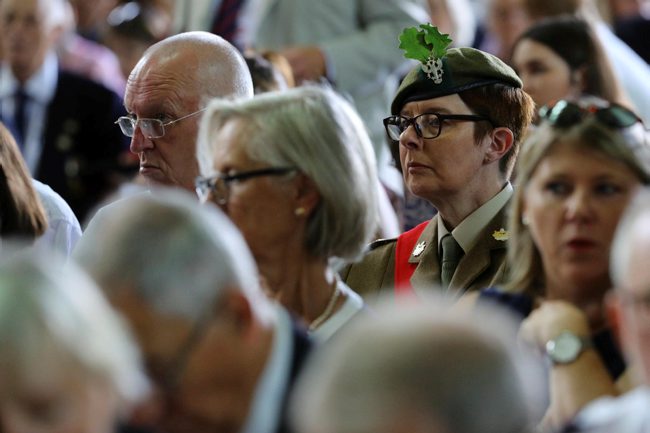
The General had played a prominent role in the Somme offensive and had learnt some valuable lessons.
So he employed improved tactics and new technology, utilised alongside subterfuge, from concealing troop numbers to ending the practice of firing range-finding shells so there was no warning of the attack.
The battle saw more than 500 tanks from the UK's Tank Corps deployed, more than 1,900 British and French aircraft used, tens of thousands of troops present, with the Australians and Canadians prominent in the attack, and all supported by more than 2,000 guns from the Royal Artillery.
Over the following days, many miles were claimed from German forces, but the real impact was on the morale of many in the German high command, convincing them the war could not be won.
For the commemorations, the Prime Minister wrote: "Today, we commemorate that success, but we also reflect on the fear and hardship experienced by the people of this city and the surrounding battlefields, as well as the immense suffering demoralisation of the German troops.
"We remember with profound respect all those who served on both sides of the battle and we give thanks for their courage, bravery and skill which would lead to what the world had long yearned for, the guns finally falling silent."









